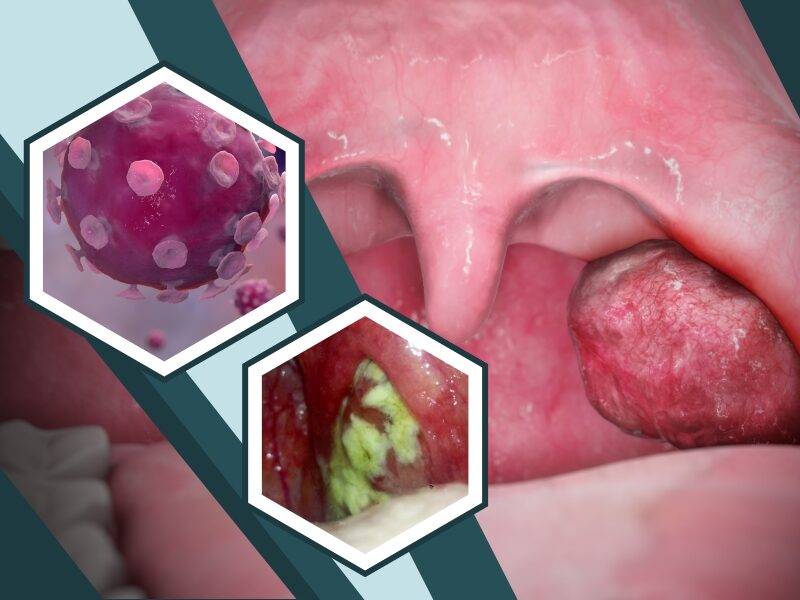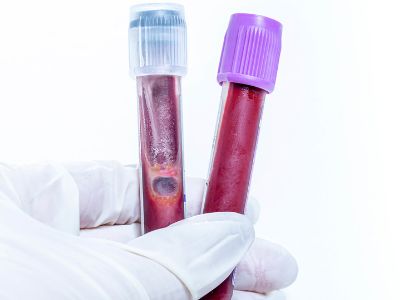Tonsillitis: Symptoms, Causes, and Treatment

What is Tonsillitis?
Tonsillitis is inflammation of the tonsils or the two oval-shaped pads of tissue at the back of the throat. Most cases of tonsillitis are caused by infection with a common virus. Bacterial infections may also cause inflammation of the tonsils.
Signs and Symptoms?

This condition is common in children between preschool ages and the mid-teenage years. Symptoms include:
- Red, swollen tonsils
- Fever and bad breath
- Enlarged, tender glands in the neck
- White or yellow coating or patches on the tonsils
- Sore throat
- Difficult or painful swallowing
- Neck pain or stiff neck
- A scratchy, muffled, or throaty voice
- Stomachache and headache
In young children signs may include:
- Drooling due to difficult or painful swallowing
- Refusal to eat
- Unusual fussiness
- Fever
Call your doctor if your child is experiencing:
- A sore throat with a fever
- Extreme difficulty swallowing
- Painful or difficult swallowing
- Excessive drooling
- Extreme fussiness, weakness, and fatigue
- Difficulty breathing
What Causes Tonsillitis?
It is caused by common viruses, but bacterial infections also can be the cause. The most common bacterium causing tonsillitis is Streptococcus Pyogenes which also causes strep throat. Other strains of strep and other bacteria also may cause this condition.
The tonsils are the immune system’s first line of defense against bacteria and viruses that enter your mouth. This function may make the tonsils particularly susceptible to infection and inflammation. However, the tonsil’s immune system function declines after puberty which becomes a factor that may cause such a condition in adults.
Risk Factors of Tonsilitis
- Age. It is most common at a young age or in children, and tonsillitis caused by bacteria is most common in children ages 5 to 15.
- Frequent contact with germs. School-age children who are in close contact with their peers are more likely to get this condition.

How to Diagnose Tonsilitis?
A throat swab is a common method to diagnose the condition. Your doctor will rub a sterile swab over the back of your throat to get a sample of secretions. The sample will be checked in the clinic or a lab for streptococcal bacteria.
A Complete blood cell count also helps with the diagnosis. Doctors will recommend this to determine what’s elevated, what’s normal, or what’s below normal can indicate whether an infection is more likely caused by a bacterial or viral agent.
Treatment and Management of Tonsillitis
Treatment of this condition depends on the causes and severity. If it is caused by a bacterial infection, your doctor will prescribe a course of antibiotics. Failure to take all of the medication as directed may result in the infection worsening or spreading to other parts of the body. Not completing the full course of antibiotics can, in particular, increase your child’s risk of rheumatic fever.
Medication Used for Tonsilitis
Amoxicillin and Clavulanate Potassium. It is an antibiotic in the class of drugs called penicillins that fights bacteria in your body to treat many different types of infections. It acts as a beta-lactase inhibitor that prevents the bacteria from developing resistance to Amoxicillin. The combination of Amoxicillin and Clavulanate Potassium is very powerful and protects against a wide range of bacterial infections.
Home Remedies for Tonsilitis
At-home care remedies to use during the recovery time include the following:
- Keep your home free from cigarette smoke and cleaning products that can irritate the throat.
- Encourage your child to get plenty of sleep.
- Provide adequate fluids to keep the throat moist and prevent dehydration.
- Use a cool-air humidifier to eliminate dry air that may further irritate a sore throat.
- Sit with your child for several minutes in a steamy bathroom.
- Providing comforting foods and liquids such as broth, caffeine-free tea or warm water can help. Cold treats like ice pops can soothe a sore throat and other symptoms.
- If your child can gargle, a saltwater gargle can help soothe a sore throat. Have your child gargle the solution and then spit it out.
- Talk to your doctor about using ibuprofen to minimize throat pain and control fever. Low fevers without pain do not require treatment.



